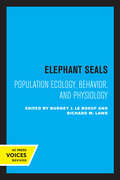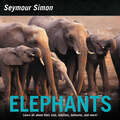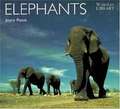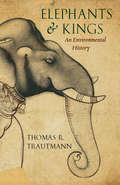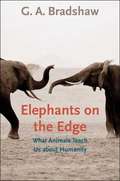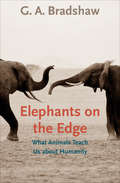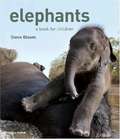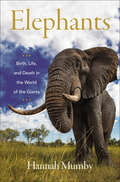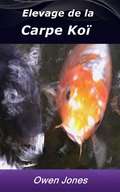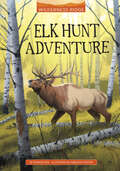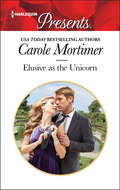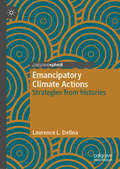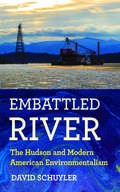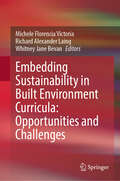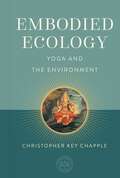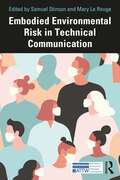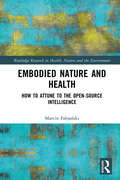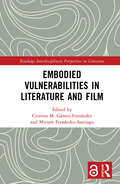- Table View
- List View
Elephant Seals: Population Ecology, Behavior, and Physiology
by Burney J. Le Boeuf Richard M. LawsThe largest of all seals, elephant seals rank among the most impressive of marine mammals. They are renowned for their spectacular recovery from near-extinction at the end of the nineteenth century when seal hunters nearly eliminated the entire northern species. No other vertebrate has come so close to extinction and made such a complete recovery. The physiological extremes that elephant seals can tolerate are also remarkable: females fast for a month while lactating, and the largest breeding males fast for over one hundred days during the breeding seasons, at which times both sexes lose forty percent of their body weight. Elephant seals dive constantly during their long foraging migrations, spending more time under water than most whales and diving deeper and longer than any other marine mammal. This first book-length discussion of elephant seals brings together worldwide expertise from scientists who describe and debate recent research, including the history and status of various populations, their life-history tactics, and other findings obtained with the help of modern microcomputer diving instruments attached to free-ranging seals. Essential for all marine mammalogists for its information and its methodological innovations, Elephant Seals will also illuminate current debates about species extinctions and possible means of preventing them. This title is part of UC Press's Voices Revived program, which commemorates University of California Press’s mission to seek out and cultivate the brightest minds and give them voice, reach, and impact. Drawing on a backlist dating to 1893, Voices Revived makes high-quality, peer-reviewed scholarship accessible once again using print-on-demand technology. This title was originally published in 1994.
Elephant and I Quilt and Pillow Pattern
by Jennifer SampouStitch a scrap-friendly quilt and pillow inspired by Jennifer Sampou’s travels to Thailand. The best-selling fabric designer pairs paper-pieced and appliquéd motifs with a background of easy-to-sew strips. Gender-neutral and customizable, this artistically modern design is a definite showpiece. The full-size pattern includes complete instructions to make a quilt and a matching pillow. Proceeds from the sale of this pattern will be donated to Elephant Nature Park in Thailand, whose mission is to provide a rescue and rehabilitation center for elephants. Unique, gender-neutral design with full-size patterns Soft background with a splash of vibrant color Paper-pieced, appliquéd elephant and person motifs Wholesale minimum: 3 units.
Elephants
by Seymour SimonJoin award-winning science writer Seymour Simon as he investigates the many characteristics and behaviors of one of the world’s most beloved animals: the elephant! This nonfiction picture book is an excellent choice to share during homeschooling, in particular for children ages 6 to 8. It’s a fun way to learn to read and as a supplement for activity books for children.From their ancient relatives, woolly mammoths and mastodons, to their amazingly versatile trunks and strong ivory tusks, elephants are some of the most fascinating animals on Earth. They are remarkably intelligent, demonstrate self-awareness, and feel familiar emotions like compassion and grief.With clear, simple text and stunning full-color photographs, readers will learn all about the largest land animals in the world!Perfect for young scientists’ school reports, this book includes an author's note, a glossary, and an index and supports the Common Core State Standards.
Elephants (WorldLife Library)
by Joyce PooleBiologist and conservationist Joyce Poole has spent over half her life studying and protecting elephants. In this fascinating introduction to the world's largest land mammal, she teaches you about the elephant's intricate society and strong sense of family, its complex infrasonic communication, its feeding and mating habits, and its chances for survival in a rapidly changing world.
Elephants and Kings: An Environmental History
by Thomas R. TrautmannBecause of their enormous size, elephants have long been irresistible for kings as symbols of their eminence. In early civilizations--such as Egypt, Mesopotamia, the Indus Civilization, and China--kings used elephants for royal sacrifice, spectacular hunts, public display of live captives, or the conspicuous consumption of ivory--all of them tending toward the elephant's extinction. The kings of India, however, as Thomas R. Trautmann shows in this study, found a use for elephants that actually helped preserve their habitat and numbers in the wild: war. Trautmann traces the history of the war elephant in India and the spread of the institution to the west--where elephants took part in some of the greatest wars of antiquity--and Southeast Asia (but not China, significantly), a history that spans 3,000 years and a considerable part of the globe, from Spain to Java. He shows that because elephants eat such massive quantities of food, it was uneconomic to raise them from birth. Rather, in a unique form of domestication, Indian kings captured wild adults and trained them, one by one, through millennia. Kings were thus compelled to protect wild elephants from hunters and elephant forests from being cut down. By taking a wide-angle view of human-elephant relations, Trautmann throws into relief the structure of India's environmental history and the reasons for the persistence of wild elephants in its forests.
Elephants on the Edge: What Animals Teach Us about Humanity
by G. A. BradshawDrawing on accounts from India to Africa and California to Tennessee, and on research in neuroscience, psychology, and animal behavior, the author explores the minds, emotions, and lives of elephants.
Elephants on the Edge: What Animals Teach Us about Humanity
by G. A. Bradshaw&“At times sad and at times heartwarming . . . Helps us to understand not only elephants, but all animals, including ourselves&” (Peter Singer, author of Animal Liberation). Drawing on accounts from India to Africa and California to Tennessee, and on research in neuroscience, psychology, and animal behavior, G. A. Bradshaw explores the minds, emotions, and lives of elephants. Wars, starvation, mass culls, poaching, and habitat loss have reduced elephant numbers from more than ten million to a few hundred thousand, leaving orphans bereft of the elders who would normally mentor them. As a consequence, traumatized elephants have become aggressive against people, other animals, and even one another; their behavior is comparable to that of humans who have experienced genocide, other types of violence, and social collapse. By exploring the elephant mind and experience in the wild and in captivity, Bradshaw bears witness to the breakdown of ancient elephant cultures. But, she reminds us, all is not lost. People are working to save elephants by rescuing orphaned infants and rehabilitating adult zoo and circus elephants, using the same principles psychologists apply in treating humans who have survived trauma. Bradshaw urges us to support these and other models of elephant recovery and to solve pressing social and environmental crises affecting all animals—humans included. &“This book opens the door into the soul of the elephant. It will really make you think about our relationship with other animals.&” —Temple Grandin, author of Animals in Translation
Elephants: A Book For Children
by David Henry Wilson Steve BloomFrom Babar to Dumbo, the elephant has long fascinated children as well as their parents. Here, eighty stunning photographs encompass every aspect of the elephant's life and world: elephants big and small, African and Asian, in the wild and domesticated, at play and at rest. Whether taken from the air, from underwater, or from the side of a jeep, these images will capture the imagination of any child. Steve Bloom's extraordinary photographs depict the elephants in their natural environment as well as in their unique relationships with people. Here are elephant babies playing in the dust, families rolling in the mud, polo-playing elephants, elephants at bath time, impressive herds roaming the plains, and much more. The entertaining texts by David Henry Wilson explain anything and everything of interest about elephants, from why they flap their ears to how much they weigh and how much they eat.
Elephants: Birth, Life, and Death in the World of the Giants
by Hannah Mumby“Walking with these elephants, and with Hannah, will appeal to the Planet Earth viewer and the Robert Macfarlane reader in equal measure.” —Dan Jones, New York Times–bestselling authorWhat Jane Goodall did for chimpanzees, international ecologist and conservation scientist Hannah Mumby now does for elephants in this compelling, eye-opening account that brings into focus this species remarkably similar to humans—and makes a persuasive argument for saving them.These extraordinary animals have so much to teach us, Mumby argues, and Elephants takes readers into their world as never before, revealing a society as complex as the chimpanzees, maybe even humans. Mumby’s exploration of elephant culture provides an empathetic, humanistic portrait of these majestic animals, illuminating their personalities, memories, and rich emotional lives. Mumby explains how elephants communicate with one another and demonstrates the connection between memory and trauma—how it affects individual elephants and their interactions with others in their herd. Elephants and humans, Mumby makes clear, are not very different. From emotional bonding to communication, human and elephant experience similarly nuanced lives, and the commonalities she uncovers are both surprising and heartwarming.Featuring a sixteen-page color insert of original photography, Elephants is a captivating, deeply moving exploration that offers a new way to look at these pachyderms and ourselves and a persuasive, passionate argument for rethinking our approach to animals and their conservation.
Elevage de la Carpe Koï (Comment faire... #1)
by Owen JonesElevage de la Carpe Koï Le contenu de ce livre audio sur les étangs domestiques de Koïs et les sujets connexes est organisé en dix-huit chapitres, qui vous aideront à choisir un site pour votre étang de carpes Koïs, à l'aménager et à l'entretenir toute l'année et à prendre soin de vos précieux poissons au cours des différentes saisons et même dans des conditions météorologiques particulièrement défavorables. Il peut même vous aider à vous lancer dans une nouvelle carrière. Le moins que vous puissiez faire est d'économiser des centaines de dollars sur les conseils d'un professionnel.
Elizabeth Barrett Browning: Much-loved poems from one of the greatest Romantic poets (The Great Poets)
by Elizabeth Barrett Browning'How do I love thee? Let me count the ways'Elizabeth Barrett Browning was a poet of passion, wit and conscience. She was also a woman who wrote to speak the truth about everything she knew - and she knew just what it was like to be a thinking woman in a society that wanted women to be weak. The eldest of twelve children, she wrote poetry from the age of eleven, and became a highly successful poet in her lifetime - and remains very much loved today.She was also a strong advocate for human rights, campaigning to abolish slavery and child labour, and her three-part poem A Curse for a Nation is a powerful polemic against the slave trade.'I heard an angel speak last night, and he said "write! Write a nation's curse for me, and send it over the western sea" '
Elizabeth Barrett Browning: Much-loved poems from one of the greatest Romantic poets (The Great Poets)
by Elizabeth Barrett Browning'How do I love thee? Let me count the ways'Elizabeth Barrett Browning was a poet of passion, wit and conscience. She was also a woman who wrote to speak the truth about everything she knew - and she knew just what it was like to be a thinking woman in a society that wanted women to be weak. The eldest of twelve children, she wrote poetry from the age of eleven, and became a highly successful poet in her lifetime - and remains very much loved today.She was also a strong advocate for human rights, campaigning to abolish slavery and child labour, and her three-part poem A Curse for a Nation is a powerful polemic against the slave trade.'I heard an angel speak last night, and he said "write! Write a nation's curse for me, and send it over the western sea" '
Elk Hunt Adventure (Wilderness Ridge)
by Monica RoeFor twelve-year-old Coral, having divorced parents means only getting to see her dad a few times each year. So when he invites her on a guided elk hunt—on horseback—in the Colorado mountains over fall break, Coral is thrilled. She's sure that this will be the adventure of a lifetime—and great bonding time with her father—even if she is nervous around horses. The hunt is fun, but soon things start to unravel. Coral struggles to find her confidence and feels strangely distant from her dad, especially when he surprises her with some big news. When a huge storm blows in, turning the mountain slippery and treacherous, Coral realizes she must overcome her fears and feelings of resentment to make it back down the mountain to safety.
Elsa And Her Cubs
by Joy AdamsonFrom the Book Jacket: In 1956, George Adamson, Senior Game Warden of the Northern Frontier District in Africa, killed a lioness, who had charged him, and brought home to his wife, Joy, three little lionesses only a few days old. Two of the cubs were sent to a zoo in Holland. The third, Elsa, remained with the Adamsons as an affectionate member of the household. In time Elsa had cubs of her own in the bush and brought them to meet the Adamsons. Because of the many photographs the Adamsons have taken of Elsa and her cubs, Mrs. Adamson has made another book so that others may share and enjoy them. She tells here the story of Elsa's cubs from the first time Elsa brought them to camp until they were taken to the Serengeti National Game Park when they were fifteen months old. With picture Descriptions.
Elsa: The Story of the Famous Lioness of "Born Free"
by Joy AdamsonFrom the Book Jacket: The true story of a lioness who was brought up from cubhood by JOY ADAMSON and her husband, a senior game warden; they taught her to stalk and kill for herself so that she could be set free into the African Jungle With Picture Descriptions
Elusive as the Unicorn
by Carole MortimerRe-read this classic romance by USA Today bestselling author Carole MortimerWhen Eve Eden discovers that successful art entrepreneur, Adam Gardener, is searching for the legendary English artist, The Unicorn, she nervously shies away. The Unicorn's true identity hits a little too close to home…But Eve is rattled—and intrigued—by Adam's mesmerizing presence, and his determination to entice her into his arms. As an engaged woman, she shouldn't be flirting with anyone, let alone the most delicious man she's ever laid eyes on… Can Eve resist the temptation of the forbidden?Originally published in 1989
Emancipatory Climate Actions: Strategies from histories
by Laurence L. DelinaThis book calls for a collective strengthening of the progressive dimension of climate action in the face of continued myopic governmental response. Delina argues that consent must be revoked and power realigned to avoid suffering the consequences of unabated climate change. He looks back at the mechanisms that make previous social mobilizations successful to design strategies that would advance a new hegemonic agenda. This new agenda calls for the culturing of contemporary human societies towards a hegemony characterized by just emancipations and sustainable transformations. Mining select histories from India, the United States, the Philippines, and Burma, the book explores topics including visioning and identity building; framing; triggering pressure; boosting publicity; and diversifying networks as strategic tools to the repertoires of climate action groups, organizations, and institutions. It will be of great value to academics and practitioners, as well as to anyone interested in how to actively combat climate change.
Embattled River: The Hudson and Modern American Environmentalism
by David SchuylerIn Embattled River, David Schuyler describes the efforts to reverse the pollution and bleak future of the Hudson River that became evident in the 1950s. Through his investigative narrative, Schuyler uncovers the critical role of this iconic American waterway in the emergence of modern environmentalism in the United States.Writing fifty-five years after Consolidated Edison announced plans to construct a pumped storage power plant at Storm King Mountain, Schuyler recounts how a loose coalition of activists took on corporate capitalism and defended the river. As Schuyler shows, the environmental victories on the Hudson had broad impact. In the state at the heart of the story, the immediate result was the creation in 1970 of the New York State Department of Environmental Conservation to monitor, investigate, and litigate cases of pollution. At the national level, the environmental ferment in the Hudson Valley that Schuyler so richly describes contributed directly to the creation of the Environmental Protection Agency in 1970, the passage of the Clean Water Act in 1972, and the creation of the Superfund in 1980 to fund the cleanup of toxic-dumping sites.With these legal and regulatory means, the contest between environmental advocates and corporate power has continued well into the twenty-first century. Indeed, as Embattled River shows, the past is prologue. The struggle to control the uses and maintain the ecological health of the Hudson River persists and the stories of the pioneering advocates told by Schuyler provide lessons, reminders, and inspiration for today's activists.
Embedding Sustainability in Built Environment Curricula: Opportunities and Challenges
by Michele Florencia Victoria Richard Alexander Laing Whitney Jane BevanThis book offers a comprehensive collection of best practices, gathered from classrooms across the globe, aimed at actively engaging students in sustainability. These tried and tested methods, presented within its pages, provide educators with valuable tools that can be easily adopted or tailored to their own academic environments. Moreover, this book serves as resource for policymakers, shedding light on the fundamental drivers and formidable challenges associated with integrating sustainability principles within higher education institutions. As an added bonus, researchers will find an overview of the cutting-edge literature currently available, as well as valuable suggestions for future research.
Ember Shadows and the Secret of the Ocean: Book 3 (Ember Shadows #3)
by Rebecca KingWith the landscapes of her world in danger from a spreading poisonous greed, Ember and her friends are off on a rescue mission. Filled with illustrations that bring the magic to life, this is an adventure series perfect for fans of Alice in Wonderland and Jennifer Bell.Ever since Ember Shadows freed her world from the Fate Cards that fixed everyone's fates, things have been changing in her world ... and not always for the better.Now that people are learning about the existence of the magical landscapes, they want to explore them. But the landscapes are delicate, and the desire to access them is causing a terrible reaction: the Emocean is producing far, far too much greed, poisoning the lands. With both the realms and the creatures within them at risk, Ember and her friends have to travel through tunnels and across the world to administer an antidote to the greed. But with more and more people learning about the landscapes, planting an antidote may not work for long...Can Ember find a way to protect the landscapes for good?With hints of Alice in Wonderland, shades of The Phantom Tollbooth and echoes of Pixar's Inside Out, this a thrilling, warm-hearted series, a classic magical adventure, beautifully illustrated throughout by Raquel Ochoa.
Ember Shadows and the Secret of the Ocean: Book 3 (Ember Shadows #3)
by Rebecca KingWith the landscapes of her world in danger from a spreading poisonous greed, Ember and her friends are off on a rescue mission.Ever since Ember Shadows freed her world from the Fate Cards that fixed everyone's fates, things have been changing in her world ... and not always for the better.Now that people are learning about the existence of the magical landscapes, they want to explore them. But the landscapes are delicate, and the desire to access them is causing a terrible reaction: the Emocean is producing far, far too much greed, poisoning the lands. With both the realms and the creatures within them at risk, Ember and her friends have to travel through tunnels and across the world to administer an antidote to the greed. But with more and more people learning about the landscapes, planting an antidote may not work for long...Can Ember find a way to protect the landscapes for good?With hints of Alice in Wonderland, shades of The Phantom Tollbooth and echoes of Pixar's Inside Out, this a thrilling, warm-hearted series, a classic magical adventure, beautifully illustrated throughout by Raquel Ochoa.2024 Hodder And Stoughton Limited
Embodied Ecology: Yoga and the Environment
by Christopher Key ChappleIn Embodied Ecology, Hindu Studies scholar Christopher Key Chapple explores how Hindu and Yoga traditions can inform contemporary discourse about the problems of environmental degradation both in India and globally.What do Hinduism and Yoga philosophy have to say about ecology and the environment? Christopher Key Chapple provides an in-depth analysis of the traditional texts and ideas that relate to modern concerns and conversations in the environmental movement. Chapple explains what ancient Indian texts, including the Vedas and Upani?ads, tell us about the centrality of earth-awareness in early India. Chapple then also examines how contemporary eco-activists, such as Vandana Shiva, M.C. Mehta, and Sunderlal Bahuguna, are applying traditional teachings and methods to current environmental crises. Embodied Ecology highlights how Hindu and Yoga ideals can address pressing environmental problems including global consumerism, the proliferation of plastic waste, species extinctions, and climate change. Chapple offers insights on how Yoga ethics can help us create guidelines for the modern ills of over-consumption and how meditation practices can help foster a greater connection to the environment, as well as alleviate distress brought about by eco-anxiety. Under Chapple&’s guide, students will gain familiarity with primary Hindu texts describing methods for understanding and connecting with the five primary elements and learn Yoga practices and lifestyle changes that can be applied to bring about positive change on both a global and individual level.
Embodied Environmental Risk in Technical Communication: Problems and Solutions Toward Social Sustainability (ATTW Series in Technical and Professional Communication)
by Samuel StinsonThis collection calls for improved technical communication for the public through an embodied, situated understanding of environmental risk that promotes social justice. In addition to providing a series of chapters about recent issues on risk communication, this volume offers a diverse look at methodological practices for students, researchers, and practitioners looking to address embodied aspects of crisis and risk that incorporate UX, storytelling, and dynamic text. It includes chapters that bring embodiment to the forefront of risk communication, highlighting the cycle of content creation, dissemination, public response and decision making, continuing iterations of educational efforts, and recovery, toward increasing adaptive capacity as a whole. In addition, this work directs necessary attention to overcoming perceptual difficulties, memory lapses, definitional differences, access issues, and pedagogical problems in the communication of risks to diverse publics. This collection is essential reading for scholars and can be used as a supplemental text or casebook for courses in technical communication, environmental communication, risk and crisis communication, science communication, and public health.
Embodied Nature and Health: How to Attune to the Open-source Intelligence (Routledge Research in Health, Nature and the Environment)
by Marcin FabjańskiThis book describes how, as a species our survival and capacity to flourish depends on realizing the intimate relationship of humans with nature through active, embodied participation with nature. Living within the physicality of the planet is not a limitation, rather it is our liberation. Full realization of the consequences of this relationship, through embodied action, can liberate us from ego-dependence and transform us into a community of interdependent and flourishing beings. Embodied Nature and Health: How to Attune to the Open-source Intelligence describes a systems analysis of presence-centered cultivation of well-being through particular ways of being physically and mentally active in relation to nature that aims at helping the individual attune to natures’ rhythms. The systems analysis proposes the hypothesis of the Open-source Intelligence: an intelligence which originates from the placement of individual organisms in the tissue and the process of life. This framework draws upon and integrates contemporary research into the human–nature relationship and human well-being, and ancient philosophies that were developed prior to the Cartesian gap between the mind and the body, as well as using an auto-ethnographic approach dervied from the experience of the author. The proposed system highlights a practical approach to well-being, based on research into human attention and its effective usage in daily life. The book outlines a methodology that can be used in schools, as a basis of training in sports, as well as in the field of self-development, and highlights the necessity to develop a new, non-abusive relationship with the natural environment. This novel, multi-discipline, first-of-its-kind research book will be of strong interest to experts and academics in the fields of physical activity, education, ecology, and philosophy.
Embodied VulnerAbilities in Literature and Film (Routledge Interdisciplinary Perspectives on Literature)
by Miriam Fernández-Santiago Gámez-Fernández, Cristina MEmbodied VulnerAbilities in Literature and Film includes a collection of essays exploring the ways in which recent literary and filmic representations of vulnerability depict embodied forms of vulnerability across languages, media, genres, countries, and traditions in the late 20th and early 21st centuries. The volume gathers 12 chapters penned by scholars from Japan, the USA, Canada, and Spain which look into the representation of vulnerability in human bodies and subjectivities. Not only is the array of genres covered in this volume significant— from narrative, drama, poetry, (auto)documentary, or film— in fiction and nonfiction, but also the varied cultural and linguistic coordinates of the literary and filmic texts scrutinized—from the USA, Canada, Spain, France, the Middle East, to Japan. Readers who decide to open the cover of this volume will benefit from becoming familiar with a relatively old topic— that of vulnerability— from a new perspective, so that they can consider the great potential of this critical concept anew.
